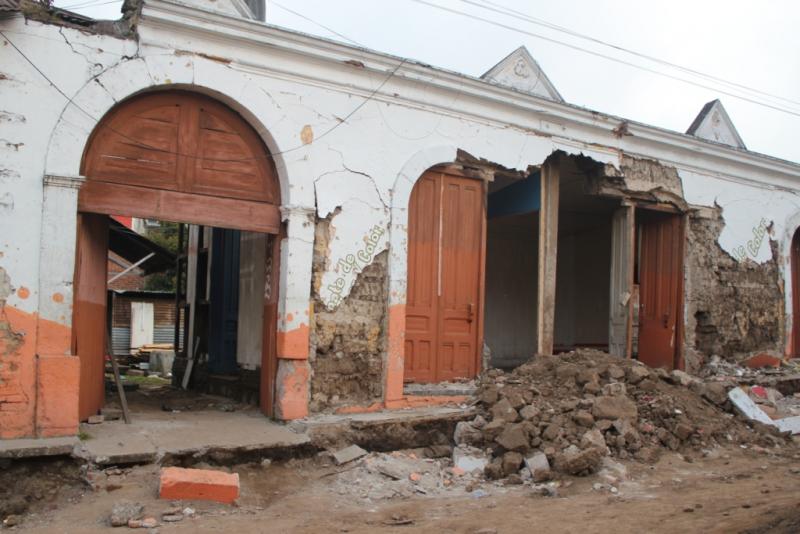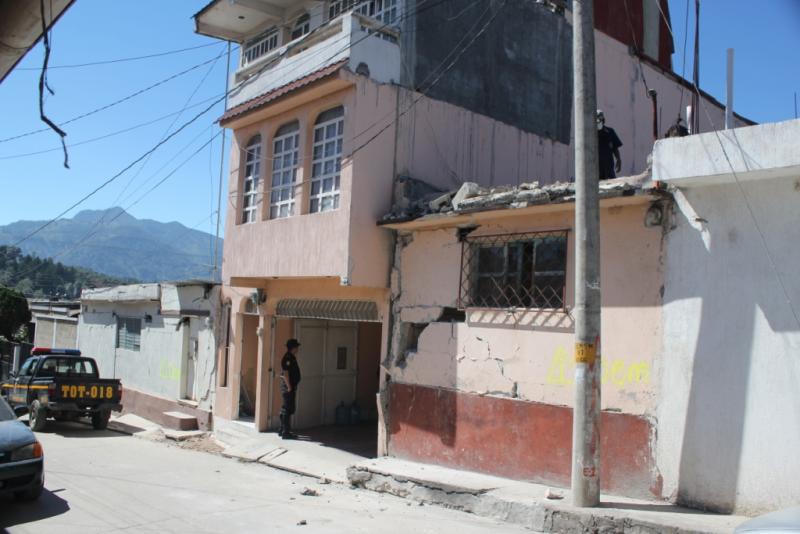
Published in the January-February 2013 NewsNotes
In November the Guatemalan Bishops’ Conference issued a statement recognizing the current crises in Guatemala. Many of the points raised highlight the goals that the Maryknoll Office for Global Concerns has outlined for our Sustainable Pathways to Peace and Inclusive Security (SPPS) program work. Through SPPS we promote peace based on a concept of true and just community and economies of "enough," to increase the sense of security in community and diminish the likelihood of resource wars.
Recently Guatemala has lived through massive sink holes in Guatemala City, severe flooding caused by Hurricane Irene, ecological destruction and water pollution in mining areas, and November’s 7.4 magnitude earthquake in San Marcos. All these events signal ecological crises that point to the susceptibility of the impoverished majority of Guatemalans who live in extremely vulnerable areas. Additionally, recent political clashes in Guatemala (see November-December 2012 NewsNotes) point to the consequences of a government that shapes policy to benefit the economic elite and uses security forces to repress any opposition. All the while, the majority of Guatemalans live in a state of "not enough" – lack of health care, inadequate education, malnutrition and no means to provide food for their families.

Photos show earthquake damage in San Marcos, Guatemala

Through all of this upheaval, how are Guatemalans to pursue peace and live in security? In mid-November, the Catholic bishops’ conference of Guatemala issued a reflection on the current situation entitled What then shall we do? (Luke 3:10). The statement starts with the recent earthquake which caused massive upheaval; the bishops issue a call all to generosity and solidarity – to help those affected rebuild their lives. But the letter goes on to address "another type of upheaval in our country [that calls] us to serious reflection." The writers refer to the intensifying social conflict and violence that has taken a toll on Guatemalan families and on society.
The bishops state: "We are witnesses to a situation in which almost the entire population lives in fear: fear of losing their lives, fear of assault or extortion … fear of unemployment, fear of not finding spaces to survive in the labor market, fear of going through some extreme need or illness without having the minimum resources required to handle it. All of these deep-seeded fears make people trust each other less. Often, it makes people aggressive … [and] often willing to respond with violence or to approve of certain forms of violence that others might perpetrate."
They go on to identify the misappropriation of resources to benefit a few rather than the majority: "In recent years, a new kind of conflict has emerged due to the fact that the state has not been able to orient private investment to the common good. As state enterprises have been privatized, the prevailing dynamic has been that of enriching the private sector and rewriting economic rules to favor corporations instead of the common good. The government has not been able to gain the public support it needs to implement its energy development policies or its education policies. It has spent its budget on patronage politics with programs that focus on handouts, instead of attacking the structural causes of poverty in Guatemala. The poorest groups, indigenous people, peasant farmers, and those without formal education are largely forgotten in the system even though they continue to represent the very base and identity of the country."
The Guatemalan bishops propose several ways forward beginning with promoting the Rule of Law and respect for the common good. If this does not happen, they caution, "we will be contributing to anarchy and lawlessness and the destruction of the common good as the ultimate objective of our society."
Next, the bishops also promote dialogue – beginning on the level of government institutions which "should listen to the demands of impoverished populations and work toward reasonable agreements." Additionally, dialogue must lead to a consensus "to achieve a more inclusive and viable development model, so that development is something that is possible, not just something that is desired."
Regarding private enterprises, the bishops remark, "From small family businesses to large transnational corporations, [all private enterprises] have the task of working for the country’s economic development by generating employment. An enterprise that is ethically based must have as its goal not only the generation of profit, but also the more important purpose and awareness of serving the common good of the surrounding population and of the country under whose laws it labors. The enterprise must also seek the human development of all those who are part of it. It must be careful about the environmental impact of its operations. Business activity and economic activity in general must be guided by the objective of the common good. That is to say, businesses should look at their investors’ interests in the context of the interest of all of their collaborators and that of the society in which they are located."
Since the Guatemalan government has been seen as promoting policies that benefit businesses more than people, the bishops advise, "The government must help to reduce suspicions, which become rumors, that it is a militaristic, intolerant government more concerned about advancing private businesses and their projects that in advancing the common good, a government that uses force to suffocate any attempt to criticize its administration. It will be able to achieve this through the efforts it makes to strengthen democratic processes."
Finally the bishops recommend that "[e]ach individual Guatemalan, acting out of his or her own culture and religion, must choose the culture of life. We must put an end to daily behaviors of violence, corruption, and the desire to find easy answers to difficult problems."
Read more about the SPPS program here.
Read the bishops’ complete statement here.
